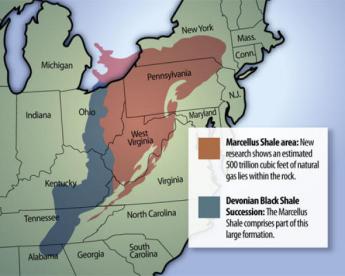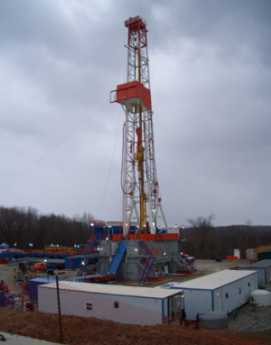Related Topics
Philadelphia Fish and Fishing
Less than a century ago, Delaware Bay, Delaware River, Schuylkill River, Pennypack Creek, Wissahickon Creek, and dozens of other creeks in this swampy region were teeming with edible fish, oysters and crabs. They may be coming back, cautiously.
Philadelphia Economics
economics
Science
Science
Nature Preservation
Nature preservation and nature destruction are different parts of an eternal process.
Dislocations: Financial and Fundamental
The crash of 2007 was more than a bank panic. Thirty years of excessive borrowing had reached a point where something was certain to topple it. Alan Greenspan deplored "irrational exuberance" in 1996, but only in 2007 did everybody try to get out the door at the same time. The crash announced the switch to deleveraging, it did not cause it.
Foreign Affairs
This topic is under construction. Feel free to watch it evolve.
Railroad Town
 It's generally agreed, railroads failed to adjust their fixed capacity to changing demands. It's less certain Philadelphia was pulled down by that collapsing rail system.
It's generally agreed, railroads failed to adjust their fixed capacity to changing demands. It's less certain Philadelphia was pulled down by that collapsing rail system.
Favorites - II
More favorites. Under construction.
Central Pennsylvania
"Alabama in-between," snickered James Carville, "Philadelphia, Pittsburgh, and Alabama in-between."
Marcellus Shale Gas: Good Thing or Bad?

|
| Marcellus Shale |
Soon after discovering widespread hard and soft coal, Pennsylvania found in Bradford County it also had oil. Local oil was particularly "sweet", with a low sulfur content. Long after much cheaper oil (cheaper to extract, that is) was found in Texas and Arabia, Pennsylvania oil was prized for the special purpose of lubricating engines, which commanded a higher price. This discovery of oil in the western part of the state also provided a vital competitive advantage for local railroads. Other east-west railroads like the New York Central and the Baltimore and Ohio lacked a dependable return cargo like this, so the Pennsylvania Railroad lowered prices and became the main line to the west for a century. Refineries were built in Philadelphia, and continue to dominate Atlantic coast gasoline production, even though the source of crude oil is mostly from Africa. When oil and coal declined in use, Pennsylvania's industrial mightiness declined, too. Philadelphia and Pittsburgh lost much of their competitive advantage, while the center of the state just about went to sleep. When even Texas oil later ran low, America's industry turned to computer-improved productivity to keep its prices competitive, helping California at the expense of Pennsylvania. The bleakness for Pennsylvania may not last, however. Suddenly, we discover we have another enormous source of cheap energy, shale gas.
It's rather deep, however, even deeper than our supply of fresh water. The next layer below surface minerals is porous rock filled with fresh water, the so-called aquifer. Gas bearing shale is layered just under the aquifer. We'll return to the aquifer later.
There is and will be abundant oil in the world, well into the future; but cheap oil has been selectively depleted. When military and economically weak nations like the Persian Gulf had cheap oil, only transportation costs were irksome. But now Russia is emerging as an oil-rich state, previously impoverished states like Iran are asserting themselves, the existence of an international oil cartel becomes more threatening because it reinforces oil price with military threats. Raw material discoveries -- gold rushes -- are always destabilizing because they are tempting to the dictator mindset. That's known in the political literature as the source of the "Dutch Disease", not because Netherlanders are aggressive, but because North Sea oil discoveries destabilized the politics of even that little peaceful nation. America has now made a universal decision to establish energy independence. It once was credible to make predictions that in a decade or two, we would run out of competitively priced energy. To be both rich and weak invites aggression and we knew it.

|
| Gas Drilling |
There's little question America is profligate with its energy, so the need for energy conservation is undisputed. Actually, we are already five times more efficient with energy use than China is; furthermore, we have improved energy efficiency by 20% while China has defiantly worsened. We'll do better, but unfortunately, our immense investments in inefficient home heating and transportation are too costly to discard abruptly in both cases. There is also little question that American research and development of alternative energy sources has been neglected, while China is subsidizing R & D appreciably. In our frenzy, converting food into gasoline by subsidy is a bad joke, electric cars are subsidized and widely described as "Welfare buggies", wind power is twice as costly as carbon-sourced energy and needs better battery development to be able to store it, atomic energy has been encouraged by the French government, but totally held back by ours, in response to public anxieties. The long and the short of it is this: we face a fifteen-year period of doubtful energy sources, a vulnerability our international competitors and enemies might easily use against us.
And then along came shale gas, like a gleaming savior on a white horse. For seventy-five years, the world has known unlimited amounts of petrol carbons are locked into vast stores of shale. Unfortunately, it is buried deep, and located where it is expensive to transport to market. The techniques for extracting such carbons were unacceptably expensive in a world that shrugged off abundant oil. Politics and geology turned against us; we now need fifteen years of catch-up to make alternative energy sources more affordable. Cheap oil ran out before non-carbon sources became practical. But miraculously shale gas is now upon us, right here in Pennsylvania. It takes a long time to map out the existence of shale from Canada to Texas, when it is 8000 feet deep; it was first recognized in 1839 from a cliff outcrop around the little town of Marcellus, New York and vigorously explored in the disappointed hope it would lead to discoveries of bituminous coal, iron ore or other minerals. Land speculators have been roaming Pennsylvania for two centuries. Now, they are offering $5000 an acre plus royalties, just for the right to drill. In 2010, probably 5000 leases will be issued. Needless to say, the discovery is popular with local farmers, and "gas fever" has enormous political momentum. With techniques discovered around Fort Worth, Texas, about 10% of the existing gas can be extracted easily, serving America's energy needs for much of the 15 years required to make renewable, non-fossil, energy cheap and practical. This long history paradoxically accounts for the apparent suddenness of the current popularity; it's not a new mineral discovery, it is the development of practical extraction methodology at a critical political and marketing moment.

|
| Tree Hugger |
And equally needless to say, the environmental movement is being called to its barricades. Whatever is their objection to drilling for gas, 8000 feet below the surface of a wilderness? In the first place, just cutting roads through the forests is destructive to migrating and local bird populations. In a well-known process of "fragmentation", the cutting of roads allows an invasion of raccoons and similar bird predators. Forest fragmentation simply cannot be avoided if drilling rigs are to enter and leave the forests; some vulnerable bird species are bound to go extinct. This particular region is particularly prone to emissions of radon, which is a radioactive gas traveling along the stone layer and occasionally entering the basement of houses; will drilling through to the shale layer make radon seepage better or worse? Furthermore, since this sedimentary shale layer lies underneath the aquifer, drilling must go through the freshwater-bearing caverns before it gets to the shale; expensive sealing methods may be needed to keep the contaminants below from seeping up through and around the drill holes. The practice of fracturing the shale by high-pressure mixtures raises issues with water, sand, and chemicals. Water consumption is millions of gallons per year per well, seemingly enough to drain the rivers and creeks. Some operators will be tempted to use the aquifer as a surreptitious source of water, leading to consequences hard to anticipate. The sand is meant to support the walls of the rock fractures but may clog up other channels unintentionally. And the composition of the chemical drilling components is a trade secret which the extraction companies naturally wish to keep private; it's pretty hard to get public approval of a secret. So to sum it all up, there is a legitimate need to hurry the drilling, and there are legitimate environmental safety issues to be addressed, slowing it all down. New York State has passed laws prohibiting further drilling. Is that an opportunity for Pennsylvania, or a warning we should heed?

|
| Where's My Aquifer? |
This is a time for serious negotiation, and the spending of serious amounts of money on study and monitoring, not for shouting. Politicians sense you can't make omelets without breaking eggs. For them, it's a question whether to choose to be blamed for the inevitable problems of exploring new science, or whether to be blamed for lack of patriotism in a national emergency. The amount of heedless rhetoric is predictably extreme, and the money available to spin it is daunting. If there is anything resembling a middle road in this uproar, let's explore it. In the first place, some sensible discussion between scientists of both sides can be held immediately. Geologists are probably unaware of issues like forest fragmentation, while naturalists are probably unfamiliar with radon hazards and available drilling precautions. Some concerns are exaggerated, some are unsuspected; let's get the experts together quickly and establish most of the knowns and unknowns before popular media runs away with the issue. Let's get the responsible leaders of the gas extraction industry into continuous dialogue with the responsible leaders of environmental protection organizations, so wars they get dragged into are real and not hysterical. Let Congress consider the issue and appropriate funds immediately to study the issues everybody agrees need to be addressed. It seems very likely the huge corporations involved in this issue will rather easily agree among themselves on responsible positions unless they get rattled by overly vocal denunciations. Since this is a gold rush, however, it is also likely that underfunded small operators will start to employ short-cuts and rush heedlessly into dangerous territory; large operators will wish to have laws passed to restrain everybody, small operators will plead fairness. The more transparency this field has, the better. And the most immediately obvious area of resistance to transparency is the natural wish to protect trade secrets in the composition of drilling fluids. In time, the other continents of the world will develop satisfactory drilling fluids; the secret won't last long. The situation cries out for the large operators to negotiate among themselves so those who have an incentive to protect secrecy can tell us how to do it responsibly, while those with a political incentive to expose secrets can be offered time limits related to the how fast the rest of the world catches up. Politicians particularly need to be offered some mechanism for assuring the public about those secret injection ingredients.
Anyway, let's negotiate a way to take chances we have to take, but avoid the costly blunders of studying the issue to death. Hurry up, folks, it's a matter of time before problems have to be faced.
Originally published: Tuesday, May 11, 2010; most-recently modified: Wednesday, May 15, 2019
| Posted by: Jan Gordon | May 14, 2010 11:16 AM |
Remind them of the Chinese experience with birds and bugs. When the Communists came to power in China, they declared war on all birds, expecting a large increase in grain production, believing that hungry birds seriously impacted their ability to feed the Chinese population. However, the actual result was a plunging grain production because crops were much more seriously infested with insects than they had been before all the birds were killed. Early Western visitors to China in the Communist era saw zero birds and heard no bird song. After the authorities realized their error and changed the policy, the return of buirds was very slow and populations still are very low except in some regions which are inportant migratory stop-overs. I saw one such in western Yunnan just below the Tibetan plateau, in an area thought to be the famed Shangri-La. All sorts of migratory cranes, water fowl and waders could be seen plus raptors which preyed on them. I would love to go back on a real ornithological trip. We should be very wary of allowing new, large-scale. exploitation of the planet. Results are seldom what was expected or as beneficial as promised.